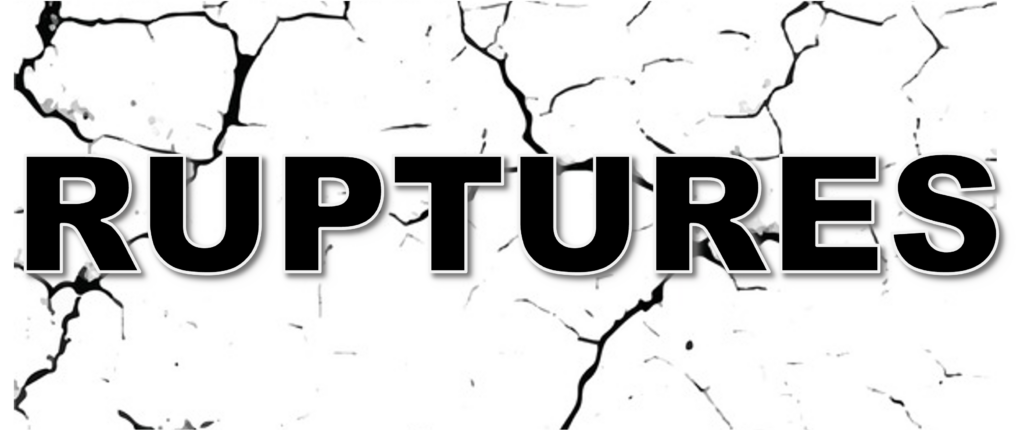#AoIR2025 Call for Proposals
Submissions are open here: https://www.conftool.org/aoir2025
Rupture signifies a break or interruption in continuity. It can also represent a breakdown of social relations. The concept of ruptures connects to diverse fields, such as archeology and genealogy, as methods and tactics that interrogate the relationship between knowledge and power, challenge hierarchies, question dominant discourses, and reactivate local knowledge. This conference theme focuses on the idea of exploring alternative internet histories and theoretical perspectives on the internet and technologies, often overshadowed by the dominance of Western discourses and big tech media.
Despite often not being recognized as technology producers due to our colonial history, Brazil’s history of dissidence and breach of norms has fostered innovation, and dissidence creating different time layers in both creating and consuming them, from early tech adopters to movements bridging the digital divide, from social activism to entertainment. These disruptions are processes that deeply influence vernacular and popular cultures, intellectual frameworks, interfaces, social platforms, and networks. An important recent rupture was Brazil’s challenge to the economic and cultural dominance of the platform “X,” defending its political sovereignty in a court of law. The theme of ruptures for #AoIR2025 recognizes these significant contemporary moments and the broader impact of such breaks on society and technology.
Brazil has played a pioneering role in developing theoretical frameworks for the study of digital cultures, media, activism, and digital law, as well as in the promotion of open-access science. In the early 2000s, Brazil hosted major international events and key discussions on free software community and culture and initiated programs like “Cultural Points,” a State digital literacy initiative. Additionally, since the 1960s, both Brazil and Latin America have been at the forefront of disruptive uses and reflections on digital technologies.
The widespread use of social media platforms in Brazil since the early 2000s, such as Orkut, apart from the intense production and consumption of games and other digital artifacts like memes and fan works plays has also played a crucial role in shaping sociabilities and subjective experiences. However, digital transformations and platformization, coupled with an economic crisis, have also led to challenges, such as the intensification of precarious labor, the proliferation of disinformation, and conspiracy theories became a local and global challenge.
Countries from the Global South have become data colonies, as legal frameworks lag behind and platforms from the Global North exploit local labor and data, as many of these countries were unable to approve legislation to avoid data exploration because of different lobbies from these platforms. Queer, Black, Indigenous, Feminist, and other marginalized communities are actively resisting these trends by developing alternative imaginaries, metaphors and uses for digital technologies.
Drawing on these reflections, we encourage diverse conceptualizations and approaches to the theme of ruptures in the context of the internet and digital technologies. We ask: How do both ruptures and continuities shape the histories of digital technologies? How can we develop strategies and tactics to address the ruptures caused by platformization? What creative digital experiments have emerged—and disappeared—through the use of these technologies? How can we engage with intersectionality, race, gender, and geography in these discussions and in the future of Internet Studies? How can we dismantle data colonialism and build emancipatory alternatives? We specially seek research that expands critical perspectives and challenges current understandings of digital ruptures and continuities from both local and global perspectives.
We welcome submissions on the following topics and beyond:
- Alternative internet and technology histories
- Ruptures and continuities of digital media scholarship
- Digital Humanities methodologies
- Everyday practices of technological dissidence
- Internet infrastructures and sustainable futures
- Disinformation and the public sphere
- Disruptions in audio/visual models on digital platforms
- Algorithmic antagonisms
- Community dynamics in digital platforms
- Celebrity and fan culture disputes and affects (transformative/toxic fandom, cancel culture, etc.)
- De-platforming strategies and tactics
- Intersectional dissidences in social media practices and representations
- Law, sovereignty and regulation of digital platforms
- Digital labor ruptures
- Peripheral creator economies and digital influencers
- Climate change and scientific digital practices
- Popularization of science in digital platforms
- Ruptures in Digital Humanities studies
- Archiving and collecting as a disruptive practice in Internet Studies
- Digital solidarity economies
- Low-tech creativities
- Tactical ruptures in the history of art and media activism
- Practices of disconnectionWe also welcome submissions on topics that address social, cultural, political, legal, aesthetic, economic, and/or philosophical aspects of the internet beyond the conference theme.
The committee extends a special invitation to students, researchers, and practitioners who have previously not participated in an AoIR event to submit proposals, and to scholars from the Global South, Black, Indigenous, and People of Color globally, LGBTQIA+ peoples, scholars living with disabilities, and people outside or adjacent to the academy. With this in mind, AoIR is committed to investing more than ever before in travel scholarships, as well as other initiatives, to support conference participants. Moreover, we will for the first time experiment with forms of multi/bilingualism to further our mission of diversity and inclusivity within internet research.



